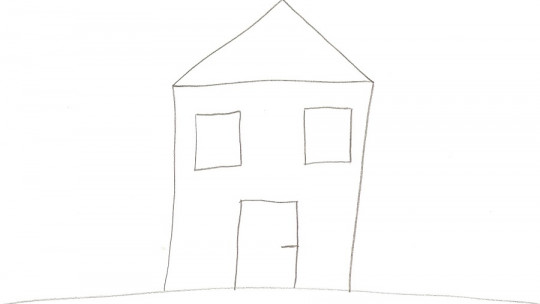My client Lucía was a happy and creative girl. She loved to paint, sing and dance, she expressed herself freely with joy and a limitless imagination However, as Lucía grew older, she began to pay more attention to outside expectations. At her house they told her to stop painting, that most painters are poor, and that she should stop singing because she was out of tune.
She danced very well, she was sure of that, but no one encouraged her. She was told over and over again that she should do like her sister, that she was “educated and a good student” and that she would “have a secure future.” Those external voices were undermining her own love for her and clouding her perception of herself. Her spark began to languish, she let go of her passions, and she began to struggle to fit in and meet the standards imposed on her.
Many people, like Lucía, carry beliefs that embarrass us and make us feel insufficient This impacts our self-esteem and makes us doubt ourselves. Like Lucía, many of our stories originated in experiences from childhood or adolescence, and/or in family, cultural, and social conditioning.
These factors may have made us internalize negative ideas about ourselves, such as “that what we are good at does not work in work environments” or “that it is difficult to enter certain groups and be valued.” This makes it difficult for us to accept ourselves, to embrace ourselves as we are, and to love ourselves radically.
Unfortunately, our inability to do so can create a fragmented self-concept—that is, one that is not true to the truth—and biased by the voices to whom we have given authority. As a result of so much self-rejection, we become our own worst enemies being more prone to self-criticism, self-judgment and feelings of inferiority.
What does it mean to truly love each other?
Learning to love ourselves radically is a lifelong journey that requires our constant reflection, self-compassion, and inner work The latter involves questioning and challenging our limiting beliefs and adopting new, empowering perspectives.
It is also important to highlight that loving ourselves radically is not selfish or indulgent but rather deep and genuine self-care that will enable our growth, healing and overall well-being. When we can radically love ourselves we shift the focus of attention from the outside to the inside and consequently, we cultivate a sense of self-worth independent of external voices and factors.
On this path, we are going to have to encourage ourselves to disappoint others when not doing so implies betraying ourselves. Loving ourselves radically requires that we cultivate a positive and nurturing relationship with ourselves, being loyal to our desires, needs, and possibilities. How can we begin to love ourselves radically?

1. Accepting that perfection does not exist
You probably have standards for yourself that are far above what is possible in real life. I’m not telling you to settle, just to give your best, let go, and trust Above all, recognize yourself as human, with the complexity that this implies, and infinitely deserving of love.
2. Nurturing relationships where you can be authentically you
Surround yourself with people who celebrate you and vice versa, with whom you can calmly establish boundaries, communicate your needs openly, and relate from a position of integrity and mutual respect. Leave the circles where you have to contort yourself to be accepted.
3. The list of your strengths
Making a list where you can give thanks for your strengths and your achievements, and taking note of the areas in your life where you are committed to your well-being. This will promote your self-awareness, self-compassion, and a deep connection to your inner wisdom
4. Mindfulness
Practicing Mindfulness, or full attention, to be able to observe your thoughts, emotions and body sensations without judging them. This awareness will help you recognize patterns of self-criticism or self-devaluation. Mindfulness will help you put a distance between yourself and what happens to you, and act with discernment afterwards.
5. Replacing self-criticism with self-compassionate self-talk
Reframe negative self-talk with affirmations that are compassionate, encouraging, and respectful of who you are. When faced with mistakes or setbacks, offer yourself love and forgiveness instead of punishing yourself
6. Celebrating your achievements
Recognize them no matter how big or small they are. Take note of your progress and give yourself credit for your efforts. We are quick to criticize ourselves and slow to pay attention to what we are doing well.
7. The diary of reflections
Keeping a journal where you write and make personal reflections This action encourages introspection, which is a bridge to connecting with your innermost self and developing deep understanding, acceptance, and love for who you are.
Conclusions
Remember that loving ourselves radically is a continuous process that requires patience and tenderness. Our self-love and self-acceptance are our birthrights. Don’t let anyone take them away from you. We ourselves are the first to internalize this truth. Seek professional help if necessary. Sometimes our problems are so deep-rooted that we need the support of someone who can provide us with guidance and with whom we can unravel and work through our most underlying challenges.









